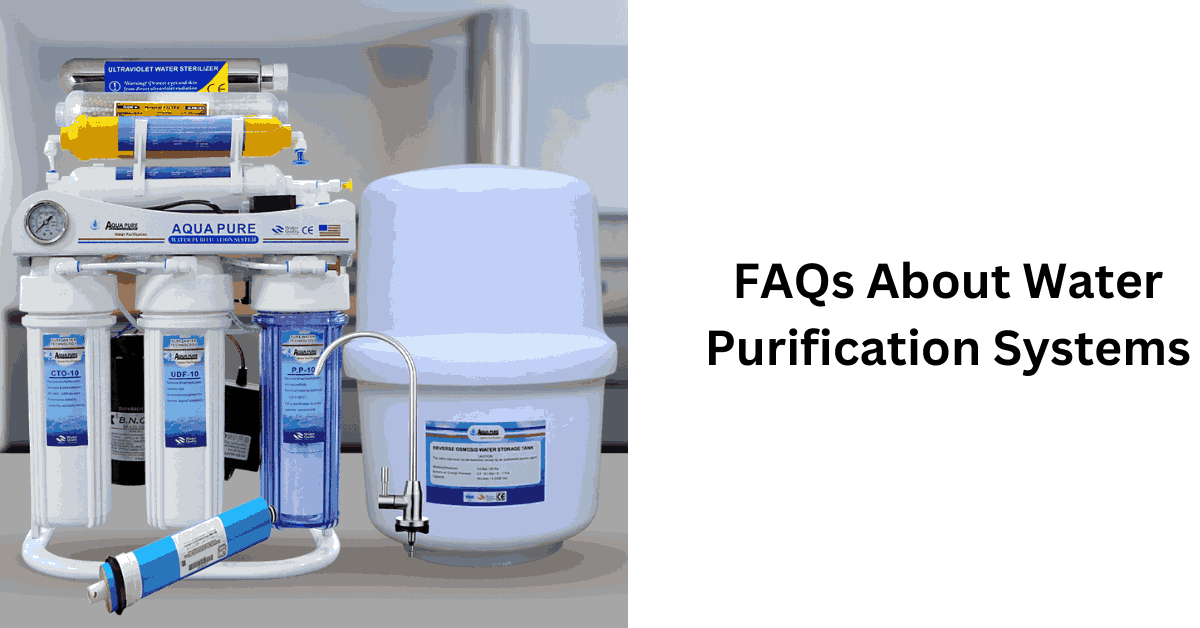Water purification systems help promote access to clean, safe drinking water. With various technologies and options available, it can be common for homeowners and businesses to have questions about these systems.
Here are several frequently asked questions about water purification systems:
Table of Contents
What Are the Different Types of Water Purification Systems?
Different water purifiers cater to specific needs and preferences. Reverse osmosis systems use a semi-permeable membrane to filter out contaminants. Activated carbon filters work by absorbing impurities as the water passes through the carbon material, removing chlorine and other chemicals.
Ion exchange systems soften hard water by swapping calcium and magnesium ions for sodium or potassium. Ultraviolet purification employs UV light to kill bacteria and viruses, which provides a chemical-free method for disinfecting water.
How Do I Know if I Need a Water Purifier?
Knowing when to invest in a water purification system for your home involves recognizing specific warning signs and conducting quality tests. Bad tastes or odors emanating from tap water may indicate the presence of contaminants that a filtration system is designed to remove.
If your water appears cloudy or has visible particles, it can be a signal that a purification system could benefit your household. Experiencing dry skin or hair after showering may suggest that your water contains hard minerals, which a water softener or filter could address.
Sediment buildup in your pipes and decreased water pressure can also indicate the need for a filtration solution.
What Contaminants Do Water Purifier Systems Remove?
Physical filters capture dirt, silt, sand, and sediment, providing more transparent water. Chemical removal can be achieved through technologies like activated carbon filters. These help eliminate chemicals such as chlorine, iron, and hydrogen sulfide.
They can also help with reducing objectionable tastes and odors. Distillation systems target common chemical contaminants, including arsenic, lead, and nitrate.
Ultraviolet purification methods are employed to deactivate microorganisms, preventing them from reproducing and causing illness. Reverse osmosis and ultrafiltration systems offer comprehensive solutions by removing a broad spectrum of contaminants, including chlorine, lead, mercury, and bacteria.
Each system targets specific types of impurities, allowing users to select an option that best addresses their water quality concerns.
How Do You Choose the Right Purification System for Your Needs?
To choose the right water purifier, start by understanding the specific contaminants present in your water supply. Testing your water can help you identify these contaminants and determine the filtration needs of your home.
The system’s size should align with your household’s water consumption, factoring in aspects like family size and overall water usage. Maintenance requirements and the ease of filter replacement are practical aspects that can influence system selection.
Purchase a Water Purification System Today
Purification systems remove impurities and provide access to clean water. By understanding the types available and their maintenance requirements, consumers can make informed decisions about which system best suits their needs.
Regular maintenance and choosing the right filtration technology based on water quality tests are significant to long-term satisfaction and safety. Contact an experienced purification system provider to learn more about installing their products in your home or business.
